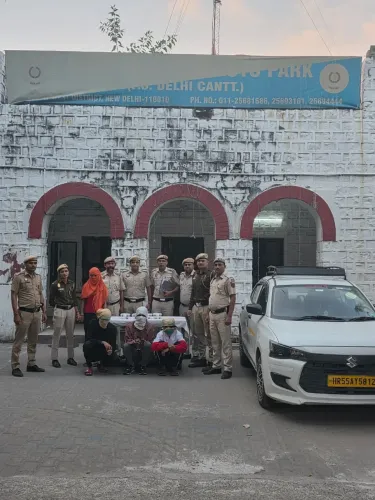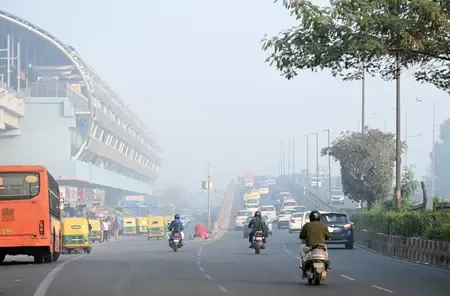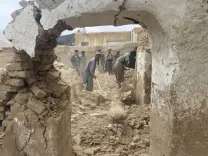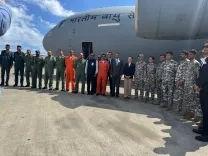Has India Banned Content from Pakistan on OTT Platforms?

Synopsis
Key Takeaways
- India has banned all content from Pakistan on OTT platforms.
- This decision is a response to rising tensions and recent terrorist activities.
- The ban affects all forms of digital media originating from Pakistan.
- India has taken military actions against terrorist camps in Pakistan.
- The suspension of the Indus Waters Treaty marks a significant diplomatic shift.
New Delhi, May 8 (NationPress) On Thursday, India took decisive action by banning content originating from Pakistan on OTT platforms, streaming services, and digital intermediaries. This move follows escalating tensions between the two nations, exacerbated by a recent terror attack in Jammu and Kashmir's Pahalgam, reportedly backed by Islamabad, and a surge of misinformation and propaganda from the neighboring country.
The Ministry of Information and Broadcasting has issued an advisory mandating all OTT platforms, streaming services, and digital intermediaries in India to immediately cease access to any content from Pakistan.
The advisory highlighted that "a number of terrorist attacks in India have been linked to Pakistan-based State and non-State actors. Recently, the terrorist attack in Pahalgam on April 22 resulted in the deaths of several Indians, one Nepali citizen, and injuries to numerous others."
"For the sake of national security, all OTT platforms, media streaming services, and intermediaries operating within India are instructed to discontinue all web series, films, songs, podcasts, and other streaming media content from Pakistan with immediate effect," it added.
In retaliation, India has successfully targeted and destroyed nine terrorist camps in Pakistan and Pakistan-occupied Kashmir using precision missiles, following the tragic loss of 26 lives (mostly tourists) in Pahalgam.
The operation was focused, measured, and non-escalatory, deliberately avoiding Pakistani military installations. Conducted from within Indian airspace, the strikes demonstrated restraint in both targeting and execution. Pakistan has signaled that it will respond at a time of its choosing.
The diplomatic relationship between India and Pakistan has reached a low point after the horrific Pahalgam attack.
In a historic first, India has suspended the Indus Waters Treaty of 1960, citing Pakistan's inability to control cross-border terrorism. The MEA stated that the suspension will persist until Islamabad takes "verifiable and irreversible steps" to terminate its support for terrorism.
India has also halted cross-border trade and revoked visas for all Pakistani nationals. Further tightening its stance, India has ordered the closure of the Integrated Check Post (ICP) at Attari, a vital land connection.
New Delhi has instructed the Defence, Military, Naval, and Air advisors from Pakistan's High Commission in Delhi to depart the country within a week. In a reciprocal action, India has also withdrawn its military attachés and supporting staff from Islamabad.









